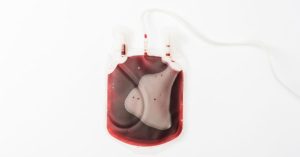
In their article “A Longitudinal Study of a Large Clinical Cohort of Patients with Lyme Disease and Tick-Borne Co-Infections Treated with Combination Antibiotics” Xi and colleagues looked at 140 individuals who tested positive for tick-borne infections (TBI) with 33% of those patients infected with multiple TBIs.
The authors found that out of the 140 participants:
- 93 (66.43%) had positive antibody responses to one tick-borne infection
- 83 (59.29%) were positive for Borrelia
- 7 (5.00%) were positive for Rickettsia
- 1 (0.71%) each for either Babesia, Bartonella, or Ehrlichia
The remaining 47 (33.57%) patients were infected with multiple tick-borne co-infections, including Borrelia, Babesia, Bartonella, Ehrlichia and Rickettsia.
Triple Antibiotic Combination Regimen
The majority of patients were treated with a triple antibiotic combination regimen.
Most of the participants received 500 mg cefuroxime, 300 mg rifampicin, and 300 mg lymecycline. Treatment duration ranged between 12 and 40 weeks.
In the first follow-up visit with 118 patients, 59% reported having pain and 41% had neurological symptoms. Meanwhile, there was continued improvement in patient symptoms at the second follow-up visit. Out of 101 patients, 41% reported having pain and 30% had neurological symptoms.
“There were statistically significant reductions in the incidence of pain and neurological symptoms between follow-ups,” the authors wrote.
Combination Antibiotics Effectively Relieve Symptoms
“Thus, our study demonstrates that combination antibiotics effectively relieve TBI symptoms with good patient tolerance.”
According to the survey, 52% of patients recalled having a tick bite, while 46% did not exhibit a bull’s-eye rash.
The patients exhibited significant improvements in their health status during the first and second follow-up visits.
“The three most common symptoms reported by the patients were pain, fatigue, and neurological symptoms, such as a tingling sensation in the limbs and memory defects,” the authors wrote.
Symptom Improvement Over Time
At the second follow-up visit, “The number of patients suffering from pain, neurological symptoms, and fatigue decreased by 41.43%, 37.50%, and 17.54%, respectively,” according to the authors.
The improvement in pain and neurological symptoms was significant but fatigue continued to be problematic for patients.
Authors’ Takeaways
- “Our study established that most patients in this cohort were infected with the Borrelia burgdorferi species, and about a third had co-infections with other tick-borne pathogens.”
- “Approximately half of the patients recalled receiving a tick bite and developing a bull’s-eye rash.”
- “Pain, fatigue, and neurological symptoms were among the most common persistent symptoms.”
References
- Xi D, Thoma A, Rajput-Ray M, Madigan A, Avramovic G, Garg K, Gilbert L, Lambert JS. A Longitudinal Study of a Large Clinical Cohort of Patients with Lyme Disease and Tick-Borne Co-Infections Treated with Combination Antibiotics. Microorganisms. 2023;11(9):2152.



What is lymecycline?
Similar retrospective study demonstrating that long-term antibiotics helped patients that would otherwise have been abandoned by IDSA protocols.
Lyme Disease Patient Outcomes and Experiences; A Retrospective Cohort Study, Rogerson AG, Lloyd VK, Healthcare 8[3] 322; 2020-09-04: https://doi.org/10.3390/healthcare8030322
Lymecycline is a tetracycline broad-spectrum antibiotic. It is approximately 5,000 times more soluble than tetracycline base and is unique amongst tetracyclines in that it is absorbed by an active transport process across the intestinal wall, making use of the same fast and efficient mechanism by which carbohydrates are absorbed.[1]
The greater absorption of lymecycline allows for lower dosages to be used; the standard dose of 408 mg is equivalent to 300 mg tetracycline base and, in its action, to 500 mg tetracycline hydrochloride. Lymecycline, unlike tetracycline hydrochloride, is soluble at all physiological pH values.
Sorry to have asked about it before – I had never heard of it.
Lymecycline | C29H38N4O10 | CID 54707177 – PubChem
Lymecycline is not marketed in the USA, however, equivalent drugs are available, such as minocycline and [tetracycline per google
I really enjoy reading this and all of his publications and research on Lyme. One of the few that cares and continues researching.
I so very much agree with you on all of these points! We are incredibly blessed and fortunate to have Dr. Cameron – who is a total game-changer!!
I Googled your question and was able to find this:
https://www.sciencedirect.com/topics/pharmacology-toxicology-and-pharmaceutical-science/lymecycline
Tks
lymecycline typo ?
Lymecycline is a tetracycline broad-spectrum antibiotic that is not marketed in the US. There are similiar drugs in the US marketed under Minocin, doxycycline and tetracycycline.